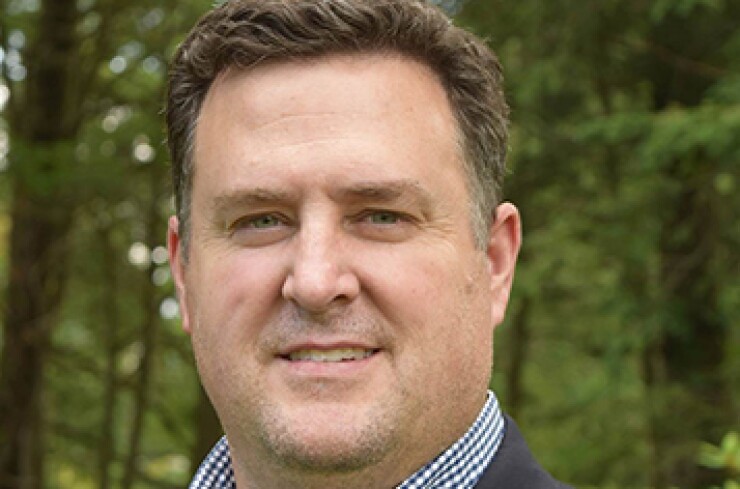Issuers are facing the worst environment for bond issuances in fifty years, panelists at this year’s Government Finance Officers Association MiniMuni Conference said, and responding to this is essential for understanding voluntary disclosure for state and local governments.
“Right now, unfortunately, it’s the most challenging market for finance officers to issue bonds in the last 50 years,” said Colin McNaught, chief executive officer and co-founder of Bondlink.
“Rates have doubled and mutual funds have much less buying power than they did years ago. “It’s very important for finance officers to keep that in mind, in terms of context for why disclosure matters and why it’s important. On the investor side, it’s a melting ice cube and investors have been reducing headcounts and on their side, they’re relying more on technology.”
He pointed to Vanguard, the largest investor in the muni market, which has also been reducing its headcount recently as a key indicator as to why demand for munis has decreased. He urged issuers to think about disclosure as more of a process than a single event.
“It really requires finance offers to just think through, I’m going to issue bonds, they’re going to be repaid over 20 years, I have a commitment to share information over the next 20 years,” McNaught said. “What is the process that we as the issuer need to put in place to make sure that’s very easily done?”
It is also important for issuers, especially those smaller ones with much less resources, to not offload responsibility for disclosure on lawyers.
“There can be a tendency to offload disclosure and say, well, it’s really our lawyers’ responsibility,” said Daniel Wiles, assistant treasurer and tax collector, finance and investments at the Los Angeles County Treasurer and Tax Collector’s office. “If you look at enforcement actions and things like that, the reality is it’s not somebody else’s responsibility. Their responsibility derives from yours. As an issuer, it’s your disclosure, you’re the one who’s closest to the ground, you need to take the opportunity to really make it your own disclosure.”
Within that, Wiles said as an issuer, it’s important to think about what other people such as your investors want, but it’s also important to think about what keeps you up at night, to understand the threats and weaknesses that you’re faced with.
“Some of the most significant problems that have happened in the municipal securities market is when the issuer outsources that responsibility that only it can do to somebody that is coming in from the outside,” said Daniel Deaton, partner at Nixon Peabody. “We are helpful in advising, providing a structure, giving understanding as to the nature of what these responsibilities are. But we can never substitute for the knowledge, the judgment or the perspective of the finance director of the city manager, of the county administrator and so on, to know the real ebbs and flows and pressure points of the financial condition of that government.”
Wiles also noted that it’s important for both disclosure counsel and issuers to have a thorough understanding of what’s material, as what is material to small issuers may not be material for large ones. But across the board, issuers that have been very successful with voluntary and continuing disclosure are the ones that treat their investors just like any other human.
“One common denominator of the people who have done this well, is they humanize it, they make it a relationship with the investors, understand the need that they have for this information, and set up a structure so that that need becomes met,” Deaton said.
“When it’s approached like that, it’s not hard to do, it’s actually a fairly straightforward thing,” Deaton added. “Where we get off the road is when we start to treat it like this scary, other world kind of thing that’s outside of what it is that we do. It is not outside of what we do. It’s just different human beings with a different relationship with a different kind of needs. But in some sense, those needs are actually easier to meet than a lot of the other needs that are actually being met on a daily basis within state and local governments.”
